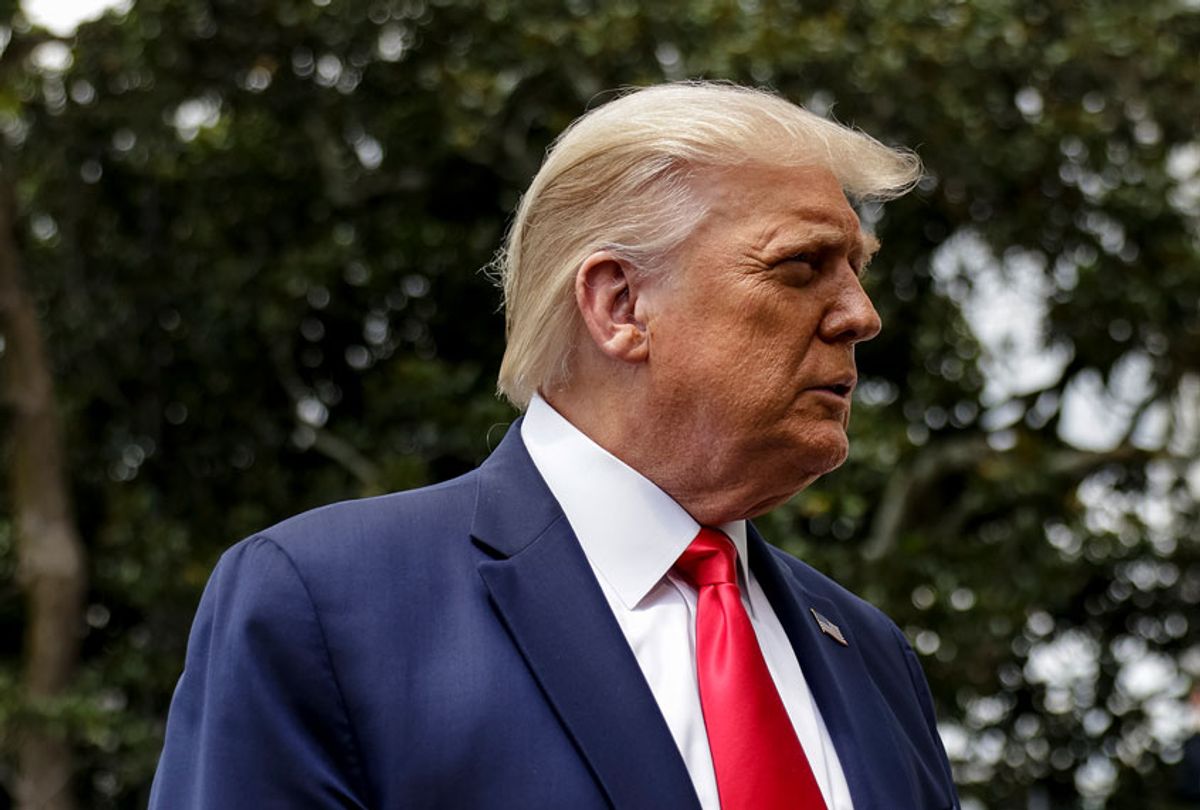Lawmakers are concerned that President Donald Trump's decision to swipe $44 billion from the Federal Emergency Management Agency (FEMA) will leave its disaster fund depleted amid a record-setting hurricane season.
Trump issued a memorandum allowing states to use $44 billion from FEMA's Disaster Relief Fund to pay $300 per week in enhanced federal unemployment benefits earlier this month. The move came after Trump and Senate Republicans refused to budge on their demands to slash boosted unemployment benefits, repeating a widely-debunked claim that the extra pandemic aid was a disincentive for workers to return to their jobs. House Democrats, meanwhile, approved a full extension of the $600-per-week benefit back in May.
After Hurricane Laura made landfall this week in Louisiana amid a hurricane season which has already seen a record-setting number of named storms, lawmakers worry Trump's move could leave FEMA unprepared to respond to recovery efforts. If the entire $44 billion is used, it could deplete the disaster relief agency's budget to as low as $25 billion, according to the Louisiana news outlet NOLA.com.
Craig Fugate, the former FEMA administrator under former President Barack Obama, told the outlet that he expected Congress would approve extra funding as it has done in the past.
"This Congress prints money faster than China can lend it to us," he said.
But Rep. Bennie Thompson, D-Miss., who chairs the Homeland Security Committee, which oversees FEMA, expressed doubts that Trump would approve additional funds after he balked at providing crucial pandemic relief to hard-hit cities and states in the latest round of negotiations. He argued that the public should not rely on unallocated funds after Senate Republicans refused to compromise on the pandemic relief package.
"We're in the midst of this pandemic, and we have hurricanes and wildfires and the Senate is in recess," he told the outlet.
Five members of the Homeland Security Committee wrote a letter to FEMA Administrator Peter Gaynor expressing that "concerns remain whether the amount will be enough given the current COVID-19 response expenditures, other current open disaster reimbursements and any future storms or disasters."
The letter noted that "the National Oceanic and Atmospheric Administration recently amended its forecast to predict 19 to 25 named storms this year."
Hurricane Laura made landfall Thursday as a category 4 storm, leaving widespread destruction in its path. Rep. Donald Payne Jr., D-N.J., who chairs a subcommittee on emergency preparedness and response, said he was "extremely concerned about the health and safety of Americans when Hurricane Laura comes ashore."
"The fact that President Trump would take up to $44 billion from FEMA's Disaster Relief Fund right before a possibly record-setting hurricane season shows his inability to protect our country during a crisis," he said in a statement. "If he had convinced his Senate allies to pass our Heroes Act, we would have extended unemployment benefits and still had plenty of money for FEMA and states to use to help Americans recover from a natural disaster, like Hurricane Laura."
But Republicans pushed back on the concerns. Rep. Garret Graves, R-La., told NOLA.com that "there is no way that we will leave our citizens hanging out there," predicting that Congress will "just print more" money for relief if necessary.
But Paul Rainwater, a disaster response expert who worked on Republican Gov. Bobby Jindal's team during hurricanes like Katrina and Rita, warned that relief funds could be delayed even if Congress does provide extra funding.
"I wish the president would have found another fund to use or worked something out with Congress," he told the outlet. "You have to have money in the pot so people can draw it down."
The active hurricane season is far from the only threat with which FEMA will have to contend. Iowa was recently hit with a rare and devastating storm, and many parts of California and the western U.S. face historic wildfires.
"There is a reason the Constitution gave Congress the sole power to authorize government expenditures," Payne said. "It was to prevent reckless presidents from taking money from one program to fund another one."



Shares